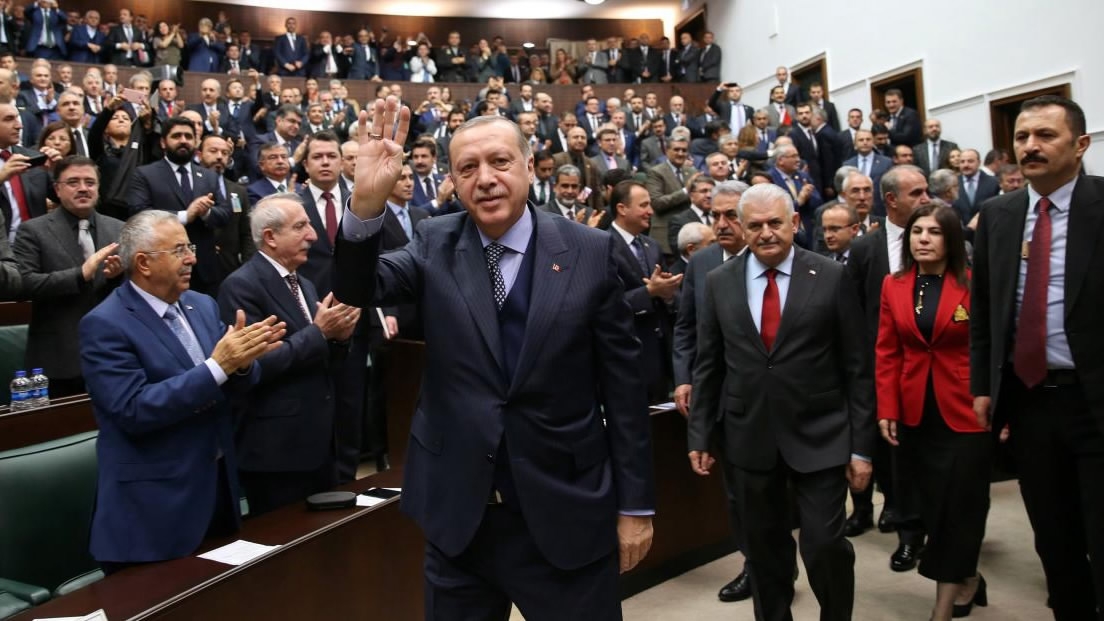
Politics
18:16, 07-Dec-2017
Greek-Turkish relations: Still a long way to go
By Filio Kontrafouri

Turkish President Tayyip Erdogan is visiting Greece on Thursday and Friday for an historic visit. As Greek-Turkish relations have never been easy, this high-level visit may not be able to make huge progress in bilateral ties, said Greek analysts
The two neighbors have been at odds about almost everything; from Turkey’s territorial disputes in the Aegean Sea, airspace and the occupation of Turkish troops of northern Cyprus to the Muslim minority in northeastern Greece. For decades, none of these thorny issues have been resolved. In fact, the two countries came to the brink of war over an uninhabited islet as recently as 1996.

A man cleans the red carpet before the welcome ceremony of Turkish President Tayip Erdogan in Athens, Greece December 7, 2017. /Reuters Photo
A man cleans the red carpet before the welcome ceremony of Turkish President Tayip Erdogan in Athens, Greece December 7, 2017. /Reuters Photo
Though Greece and Turkey have come a long way since, Greek analysts here say conditions are still not ripe enough to expect any spectacular progress in bilateral relations between the two NATO allies from Erdogan’s visit to Greece.
Athens has draconian security measures in place for President Erdogan and his entourage, which includes several ministers and a small “army” of 200 special Turkish police and bodyguards. Some 2,500 police are being deployed across the city center and there will also be street and metro station closures. Security is so tight that some details about the visit have still not been made public.
The visit is historic since President Erdogan is the first Turkish Head of State to visit Greece in 65 years and has been front-page news across Greek media that often refer to him simply as “the Sultan.”
It comes at a time when Turkey’s ties with Europe have deteriorated and Greece could become the one to give Turkey a helping hand to re-build its relationship with other EU countries. Greece after all remains one of Turkey’s strongest supporters for its European Union membership bid.

Reuters Photo
Reuters Photo
A number of bilateral issues will also be high on the agenda, like tensions in the Aegean Sea - where violations of Greek airspace by Turkish fighter planes have spiked - the refugee crisis and economic relations.
While a Greek government spokesman has said that through President Erdogan's visit to Greece anticipates “a substantive upgrade of our relationship with Turkey,” an interview of the Turkish President with Greek Skai TV that aired hours before his arrival in Athens already cast a shadow on the talks.
Greece has repeatedly called for a need to respect the Treaty of Lausanne, which has marked the borders of modern Greece and Turkey, but during the interview President Erdogan repeated his position that the Treaty should be updated, suggesting it could be beneficial for both countries. He also insisted again for Greece to return the eight Turkish military officers who fled to Greece after last year’s failed coup and have been granted asylum after Greece’s Supreme Court rejected Turkey’s request for their extradition.
Moreover, Athens remains nervous about President Erdogan’s Friday visit to Thrace in northeastern Greece, home to a Muslim community of Turkish decent, who are Greek citizens.

Members of the Muslim minority of Thrace, northern Greece, demonstrate outside of the airport of Alexandroupolis on July 16, 2016, demanding the Greek government hand over to Turkey the eight Turkish officers seeking asylum after a coup bid. /AF Photo
Members of the Muslim minority of Thrace, northern Greece, demonstrate outside of the airport of Alexandroupolis on July 16, 2016, demanding the Greek government hand over to Turkey the eight Turkish officers seeking asylum after a coup bid. /AF Photo
When Turkish Deputy Prime Minister Hakan Cavusoglou visited Thrace last month, he called them “Turkish citizens” and Turkey their “motherland,” once again fueling tensions with Greece. President Erdogan’s visit to this sensitive part of Greece appears to have been carefully choreographed between the two countries.
At Greece’s demand, there will be no open rallies or Turkish flags. With many calling President Erdogan a man known for spontaneous outbursts, the last thing Greek Prime Minister Tsipras would want during this visit is another “unexpected” statement from Greece's neighbor.

SITEMAP
Copyright © 2018 CGTN. Beijing ICP prepared NO.16065310-3
Copyright © 2018 CGTN. Beijing ICP prepared NO.16065310-3